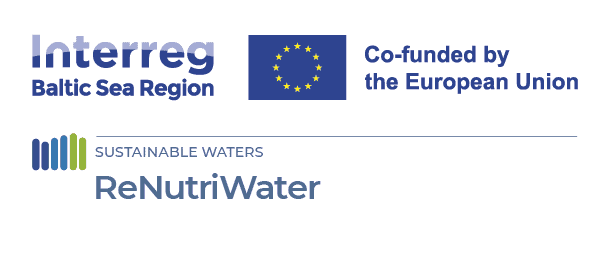
Expanding Awareness and Opportunities in Water Reuse: Insights from the Sustainable Water Solutions Survey
12 June 2025
Three targeted surveys were developed to assess awareness, identify barriers, and explore opportunities across different target groups:
- Exploring Water Reuse Awareness and Barriers in Local Public Authorities
- Survey on Water Reuse Opportunities for SMEs in Technology and Leisure Industries
- Survey on Water Reuse Awareness and Potential for Interest Groups in the Baltic Sea Region
All project partners actively contributed to the implementation of this initiative by reaching out to target groups in their countries. These surveys have provided valuable insights into knowledge gaps, raised awareness of water reuse practices, and highlighted the importance of supporting materials such as the IT tool and Handbook which are being developed in the project.
Key Findings
Among local public authorities, the surveys revealed that many municipalities already face or expect to face water scarcity, often linked to climate change. This underlines a clear need for local, sustainable water reuse solutions. While the importance of water reuse is widely acknowledged, particularly its role in preserving natural resources and ensuring water availability, authorities identified several challenges to implementation. These include limited financial and technical resources, regulatory hurdles, public skepticism, and, in some cases, a lack of urgency or awareness. Confidence in interpreting water reuse regulations varied across municipalities, influencing their readiness to adopt reuse technologies. Nevertheless, there was notable interest in regional and international collaboration to overcome these barriers. The survey also reflected the diversity of municipalities involved, with population sizes ranging from under 10,000 to over half a million, each with different capacities for initiating water reuse measures.
Among SMEs in the technology and leisure sectors, awareness of water reuse was relatively high. Many companies already utilize various reuse methods, such as collecting rainwater or reusing lake or treated wastewater, for purposes like irrigation, cooling, and cleaning. However, decisions about adopting water reuse solutions depend heavily on the quality of available water, required additional treatment, and cost-effectiveness compared to conventional water sources. Water shortages and difficulties in accessing sufficient quantities of clean water were commonly cited challenges. Encouragingly, many SMEs expressed interest in participating in regional or international water reuse initiatives, recognizing the benefits of partnerships and technological innovation for enhancing sustainability and efficiency.
For interest groups across the Baltic Sea Region, the concept of water reuse was largely familiar, and there was moderate interest in actively promoting related solutions. These organizations are already engaged in a wide range of activities, including participation in EU-funded environmental projects, water quality monitoring, public communication, lake restoration, and educational outreach on environmental topics. Just over half (51%) of the surveyed groups indicated a willingness to collaborate on future water reuse projects, demonstrating a solid foundation for building cross-sectoral and transnational cooperation.





